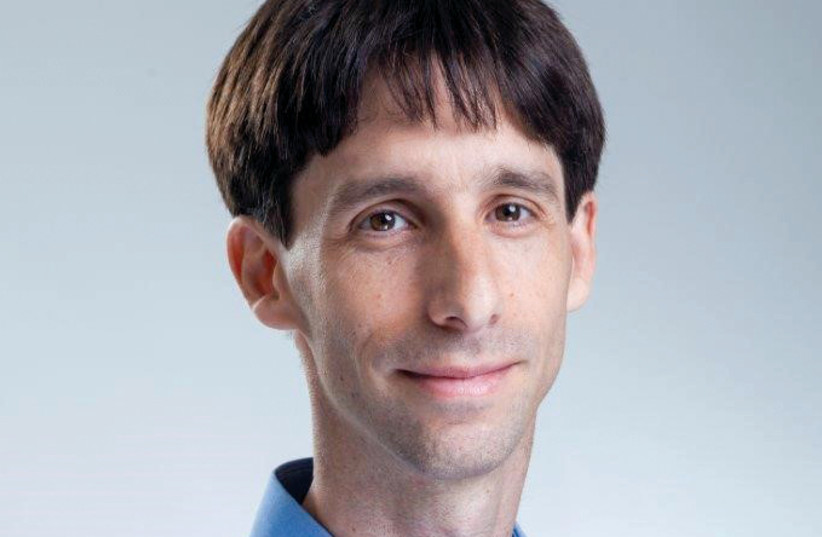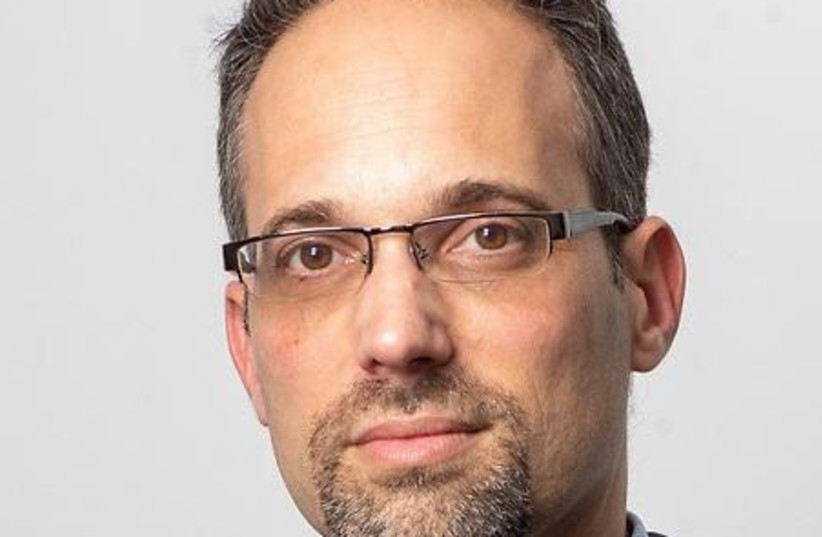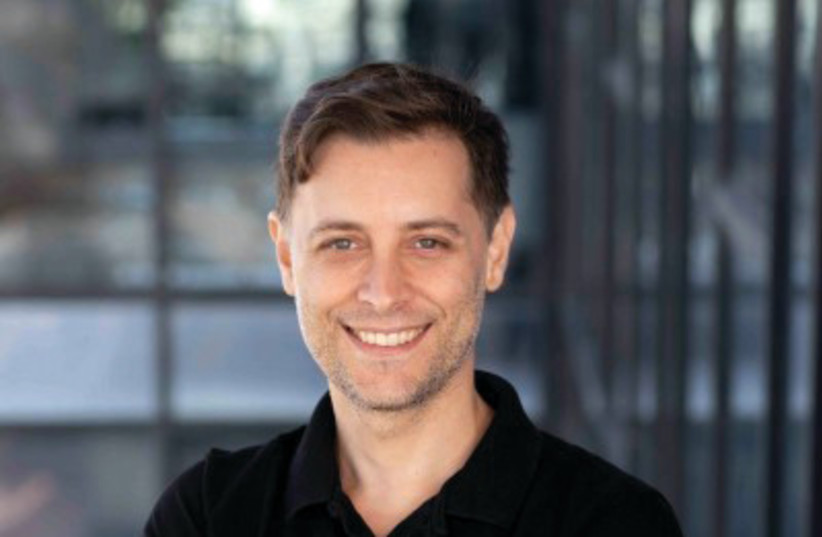Artificial intelligence (AI) has moved from the fringes to the mainstream, according to industry experts.
“In 2023, we will see more and more industry verticals adopting AI, and we will see companies being built from the ground up with AI at their center. This has transformative potential.”
Ziv Katzir
“In 2023, we will see more and more industry verticals adopting AI, and we will see companies being built from the ground up with AI at their center,” says Ziv Katzir, head of the National Program for AI Infrastructure at the Israel Innovation Authority (IIA). “This has transformative potential.”
AI has entered the healthcare and energy arenas, agriculture, travel and banking, he says. It is also being used in the context of climate.
“We have this huge climate issue and a huge set of questions and problems, and countries are infusing tons of money in this domain, from energy efficiency to water savings. We’ll probably start seeing many companies being formed that try to tackle climate issues in the context of using AI,” Katzir says.
The expectation is that AI-powered automation will deliver hundreds of millions in cost savings. At the same time, worldwide spending in the AI market is set to breach the $500 billion mark this year, according to the latest International Data Corporation (IDC) report.

By functional definition, AI is anything that a computer or other machine does that mimics/resembles/replaces a human being, Katzir explains. But today, he says, AI is being used for tasks that people never attempted to do.
“You log into Netflix or Spotify or your favorite streaming platform and get recommendations for shows that you would probably also like. You get an alert for stocks you should purchase or sell at this point in time. The computer is offering an analysis that people were never able to do,” he says.
“You log into Netflix or Spotify or your favorite streaming platform and get recommendations for shows that you would probably also like. You get an alert for stocks you should purchase or sell at this point in time. The computer is offering an analysis that people were never able to do.”
Ziv Katzir
Israel is considered a leader in the commercialization of AI technology, although Katzir says that the amount of basic AI research being done in the country is “not sufficient.”
The United States, Canada, United Kingdom and China are leading on fundamental research for AI, but these countries are “far less capable of transforming that research into an economic outcome,” Katzir says. As such, in many cases, Israel is taking ideas developed elsewhere and commercializing them.
The Israeli government has recognized the importance of AI.
Over the summer, the Israel National Digital Agency announced the formation of a national AI plan under the authority of the Ministry of Innovation, Science and Technology aimed at assisting in the development and implementation of AI in the public sector and economy.
“Our challenge is to create smart solutions to the core challenges of Israeli society and to improve public service,” agency CEO Shira Lev Ami said at the launch event in July. “You can look at AI as the luxury penthouse built over a multistory building of data and digital infrastructure. I wish I could say that our current main challenge is on the AI floor. However, the reality is that on the way to building this penthouse floor, we still have a lot of work to do.

“You have to build the foundations of this building and step up gradually, through data collection, data processing, making data accessible to researchers and digital transformation of the government,” she continued. “Investing in government data and making it accessible to the industry, academy and the government itself will lead to data-driven decision-making, improved service to the public, and a leap forward in the effectiveness of government activity for the benefit of health, welfare, education, and economy in Israel.”
“Investing in government data and making it accessible to the industry, academy and the government itself will lead to data-driven decision-making, improved service to the public, and a leap forward in the effectiveness of government activity for the benefit of health, welfare, education, and economy in Israel.”
Shira Lev Ami
Case study: AION Labs
Today, the process of developing a drug could take more than 10 years and cost well over $2 billion – and 90% to 95% of these efforts fail, according to Mati Gill, CEO of AION Labs, which opened a wet lab in the Rehovot Science Park, across from the Weizmann Institute of Science, in October 2021.
AION is a first-of-its-kind computational science lab formed in partnership with six leading international pharmaceutical and tech companies – AstraZeneca, Merck, Pfizer, Teva, Amazon Web Services and Israel Biotech Fund. The mission: To create and adopt new AI technologies that could transform the process of drug discovery and development.
“What we are seeing is Israel becoming more relevant for global biotech than we have been in the past because there is an increasing interest in global pharmacy and investors in developing AI or computationally based technology in order to optimize the way we discover drugs so we can bring new therapies to market faster and new hope to patients,” Gill says. “There’s an opportunity to do this if we can harness the capabilities of data throughout the whole process. We are looking at all aspects of that value chain and developing and setting up companies to gain insight into those mechanisms.”
He says that whereas the pharma industry for good reasons had been slower to adopt AI technologies than other arenas, post-COVID there is an eagerness to harness technology – and fast.
Pfizer scientists used AI to help them produce a COVID-19 vaccine in record time, the company explains. When a clinical trial ends, it can take more than a month for patient data to be “cleaned up” so that scientists can analyze the results, the company writes in a blog post.
“This process involves data scientists manually inspecting the data sets to check for coding errors and other inconsistencies that naturally occur when collecting tens of millions of data points,” according to the blog. “But thanks to process and technology optimizations, including a new machine learning tool known as Smart Data Query (SDQ), the COVID-19 vaccine clinical trial data was ready to be reviewed a mere 22 hours after meeting the primary efficacy case counts. The technology enabled the team to maintain an exceptional level of data quality throughout the trial, leaving minimal discrepancies to resolve during the final steps.”
Cloud computing enabled vaccine developers specifically and the healthcare industry in general to increase their processing and memory capacities when work needed to be conducted off premises, to distribute vaccines faster and more efficiently and to share essential data in real time.
“Now all sides of the industry, including regulators, understand what is possible,” Gill says.
Case study: Evogene
Israeli company Evogene has developed three unique technological engines using computational biology technologies. The company’s MicroBoost AI, ChemPass AI, and GeneRator AI leverage big data, algorithmic and AI capabilities to enable scientists to develop diverse products in the life sciences industries more efficiently.
“The way to efficiency is through the use of advanced computing capabilities based on artificial intelligence and big data in order to predict the results of experiments and thus significantly reduce the number of experiments required to reach the product.”
Ofer Haviv
“The way to efficiency is through the use of advanced computing capabilities based on artificial intelligence and big data in order to predict the results of experiments and thus significantly reduce the number of experiments required to reach the product,” explains the company’s president and CEO Ofer Haviv.
For example, in the world of chemistry, 20 billion molecules can be scanned using Evogene’s ChemPass AI, which is impossible to do in a “real experiment,” Haviv says. Another example: The MicroBoost AI system knows how to predict which bacteria will do a certain activity, so the scientists are not required to scan thousands of bacteria in order to reach the same conclusion.
“Behind each system there is an algorithm that runs on comprehensive databases in order to help our researchers identify the most promising candidate that will serve as a core compound of a future product,” Haviv explains. “This approach based on computational biology, which makes use of the integration of computers for the life sciences, is not only a necessary step for our industry but has also become a necessity in all parts of the development world because we are dealing with such large amounts of information and processing, it is not possible any other way.”
But Haviv says he does not believe that researchers will be “replaced” in his lifetime.
“You still need the judgment of the researcher in combination with the tech to really accelerate product development,” he asserts.
The future: Generative AI
However, a newer AI-based technology is calling Haviv’s statement into question.
“A trend that has gained many headlines in recent weeks is that of generative AI, such as ChatGPT,” says Katzir.
The application gained more than a million registered users in just five days, making it the fastest-growing tech platform ever. OurCrowd CEO Jon Medved calls ChatGPT “the greatest breakthrough in the last 100 years.”
“This is the future of AI,” he tells the Report.
“This is the future of AI.”
John Medved on ChatGPT
The application was developed by Jewish entrepreneur and CEO of OpenAI Sam Altman.
Recently, ChatGPT was administered 120 questions from the United States Medical Licensing Exam (USMLE), which is used to evaluate the knowledge and skills of doctors in training, by researchers from Yale University and University College Dublin.
According to the website yousmle.com, 8% of the people who take Part 1 of the exam fail. ChatGPT performed in the 66th percentile.

Modern pre-clinical education focuses on doctors-in-training memorizing facts about various diseases and their symptoms, explained Prof. Ran Balicer at a recent Healthcare 2040 event in Tel Aviv hosted by Lema’anchem. It turns out that ChatGPT can score higher than most doctors – without ever going to school.
Balicer also pointed out a recent article about ChatGPT in the prestigious peer-reviewed scientific journal Nature.
Balicer says that in the future, AI will likely be able to deliver faster and more precise diagnoses than doctors can and at a fraction of the cost. Nonetheless, code “cannot replace the human touch,” he says.
On the other hand, cyber security experts have raised a red flag in recent weeks about the application.

At the Healthcare 2040 event, Check Point Software CEO Gil Shwed said that ChatGPT and similar apps could give hackers ways to more easily write and execute malicious code.
His team ran an experiment in which it used the platform to create a phishing email that closely matched the tone and language used in real emails. It then generated a piece of basic code through the app that could be embedded in a Microsoft Excel document and would infect a computer if opened.
Shwed says that ChatGPT has the ability to significantly alter the cyber threat landscape because even young hackers with limited resources and no background in coding could exploit it.
“I believe these AI technologies represent another step forward in the dangerous evolution of increasingly sophisticated and effective cyber capabilities,” Check Point Threat Intelligence Group manager Sergey Shykevich told Tech Monitor. “The world of cybersecurity is rapidly changing, and we want to emphasize the importance of remaining vigilant as ChatGPT and Codex become more mature, as this new and developing technology can affect the threat landscape for both good and bad.”
“The world of cybersecurity is rapidly changing, and we want to emphasize the importance of remaining vigilant as ChatGPT and Codex become more mature, as this new and developing technology can affect the threat landscape for both good and bad.”
Sergey Shykevich

“I think one of the questions is whether AI is really providing value. How much is hope and how much is hype?” says Immunai CEO Noam Solomon.
He says that while there are areas where “we are seeing the value added … just having access to big data and gaining insights” is quickly becoming “old AI.”
“New AI uses new technologies to create new types of data. This is where a lot of the attention will go,” Solomon says.
Adds Katzir, “Only those that are really providing a technological edge are going to survive” the AI revolution. ■
